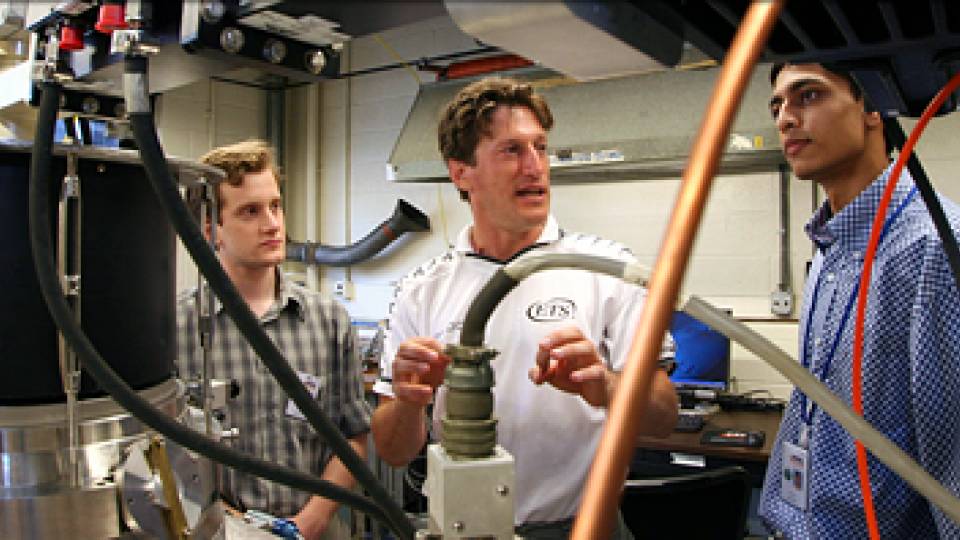Teachers from local elementary and middle school schools spent the day on campus Wednesday, May 12, trading stories about magnetic boats, model mice and scores of other innovative science lessons that they devised with help from a Princeton University program.
The teachers were participating in a one-day symposium that followed an intensive two-week series of science education workshops last summer. The symposium and workshops are part of the University’s Quest(Link is external) program, which brings teachers together with Princeton faculty, staff and graduate students to expand their knowledge of science and to generate ideas for hands-on projects they could bring to their classrooms. Quest is organized by the Princeton Program in Teacher Preparation(Link is external) .
During the symposium, teachers gave short presentations on projects that they created for their classes and that were inspired by ideas from the Quest summer workshops. Carmen Regalado, a teacher at the Grace Dunn Middle School in Trenton, presented a project on genetics in which her students made a model mouse with body parts, colors and other traits that were determined by genes they selected. “I have been using a lot of strategies we got from the workshops,” Regalado said.
Charlene Zeiss, a third-grade teacher at Hillsborough Elementary School, said that hearing the experiences of other teachers at the symposium gave her a new set of ideas. “I am so glad I was able to come back today,” she said. “I feel reinvigorated and ready to go back and do more inquiry-based science.”
The symposium was dedicated to the memory of Aaron Lemonick, a longtime member of the Princeton physics department faculty and director of Quest, who died last year. Lemonick’s son, science journalist Michael Lemonick, delivered the keynote address.
At the symposium, three teachers received Lemonick Science Teaching Awards to support innovative projects. Jennifer Errickson of Wilbur Watts Intermediate School in Burlington City received $300 to help students create a school-wide garden. Suzanne Merrill of the Lore School in Ewing received a $150 grant to create a lesson on magnetism. Colleen Lanigan of the Carroll Robbins School in Trenton received $150 to implement a chemistry unit for third- and fourth-graders.
Henry Horn, a professor of ecology and evolutionary biology and a longtime leader of Quest workshops, said that continuing interaction with school teachers has proven very valuable. “Sometimes the questions the students are asking suggest higher-level intellectual questions that we can incorporate into the teaching modules,” Horn said, noting that the key is to create lessons that engage people at all levels of expertise. “That has children behaving like scientists and scientists acting as children. If you are at the forefront of anything you need to have both those mindsets,” he said.
Contact: Lauren Robinson-Brown (609) 258-3601


